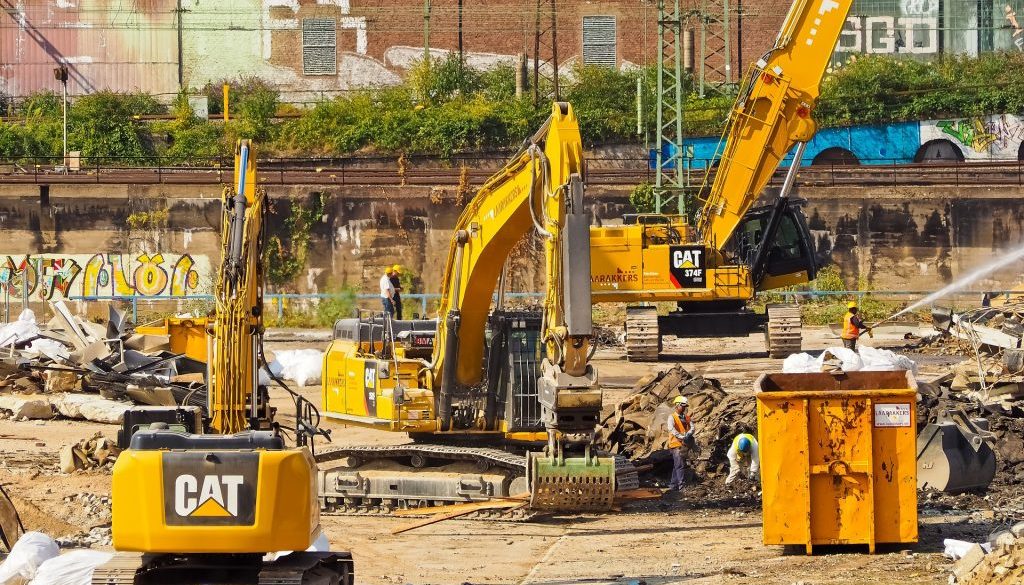Construction projects inherently produce large amounts of waste, posing significant challenges for contractors and site managers. Implementing effective waste management practices not only helps to minimise environmental impact, but also streamlines the construction process, reduces potential hazards, and contributes to overall project efficiency.
In this blog post, we will delve into the crucial aspects of safe and effective waste management on construction sites, from strategies to reduce waste generation and the essentials of proper skip hire to recycling practices and responsible disposal methods.
A comprehensive waste management plan is vital for any construction project, regardless of its size or scope. By properly addressing waste disposal and recycling needs throughout each phase of the project, you can ensure a cleaner, safer, and more efficient worksite while remaining compliant with waste regulations and promoting environmental sustainability.
Partnering with a trusted waste management provider, like Enviro Skip Hire, can significantly ease the burden of waste handling, catering to your particular project requirements with their wide range of skip sizes and services.
In the following sections, we will discuss the vital components of an effective construction site waste management plan, offering expert guidance on waste minimisation techniques, responsible skip hire, recycling initiatives, and much more. Equipped with this knowledge, you can confidently develop a comprehensive waste management strategy for your construction project and contribute to a cleaner, more sustainable building industry.
Waste Minimisation Techniques
Reducing the volume of waste generated at construction sites not only lowers disposal costs but also contributes positively to the environment. Incorporate the following waste minimisation techniques:
- Efficient Material Use: Estimate material requirements accurately to avoid overordering. Utilise offcuts and surplus materials in other areas of the project where possible.
- Prefabrication: Use prefabricated components, which typically produce less waste, require fewer raw materials, and result in shorter build times.
- Training and Education: Educate site personnel on waste reduction techniques, ensuring they understand the importance of efficient material use and recycling practices.
- Reusable Packaging: Choose suppliers that use reusable or returnable packaging materials to minimise waste from packaging.
Selecting the Right Skip Hire for Construction Waste
The appropriate skip hire is crucial for effective waste management on construction sites. Consider these factors when selecting skips:
- Skip Sizes: Choose a skip size suitable for your project’s volume of waste, ensuring it is large enough to accommodate the waste generated but not excessively large, which would result in wasted space.
- Types of Waste: Consider the types of waste your project will produce, such as rubble, timber, or plasterboard, and select skips accordingly. Some waste materials may require separate disposal methods or dedicated skips.
- Permit Requirements: If placing the skip on public land, ensure you obtain the necessary permit from the local council. A reliable skip hire provider, like Enviro Skip Hire, can help with this process.
Recycling and Responsible Disposal of Construction Waste
Adopting responsible waste disposal practices not only reduces the strain on landfills but also conserves valuable resources. Implement the following recycling and disposal methods:
- Waste Segregation: Separate different waste materials on-site, facilitating recycling and preventing contamination.
- Material Recovery Facilities: Use material recovery facilities to sort and process recyclable construction waste, maximising the recovery of reusable materials.
- Hazardous Waste Disposal: Dispose of hazardous waste material, such as asbestos and chemicals, responsibly and according to the regulations, to protect human health and the environment.
- Partnering with a Reputable Waste Management Provider: Choose a waste management provider, like Enviro Skip Hire, that prioritises recycling and environmentally responsible disposal methods.
Compliance with Waste Regulations and Legislation
Ensure your construction site waste management practices adhere to the relevant waste regulations and legislation:
- Duty of Care: Construction site managers have a legal Duty of Care for the handling, storage, transportation, and disposal of waste produced by their activities.
- Site Waste Management Plans (SWMPs): Although no longer mandatory in England, developing a SWMP demonstrates good practice and ensures compliance with waste regulations. It involves setting waste management targets, identifying waste materials, and outlining disposal methods.
- Environmental Permits: Obtain any necessary environmental permits related to waste handling, such as those required for hazardous waste disposal.
Conclusion
Implementing safe and effective waste management practices on construction sites results in an array of benefits, including cost savings, streamlined project workflows, enhanced site safety, and reduced environmental impact. By applying waste minimisation techniques, choosing the right skip hire, promoting responsible recycling and disposal, and meeting waste regulations and legislation, you can create a comprehensive waste management strategy that addresses the unique demands of your construction project.
Looking for affordable and reliable skip hire services in Stafford? Look no further than Enviro Skip Hire! Our team of waste management experts are committed to providing expert guidance, reliable service, and a commitment to responsible waste disposal practices. By partnering with us, you can contribute to a cleaner and more efficient construction industry, while making a positive impact on the environment and the future of our planet.




